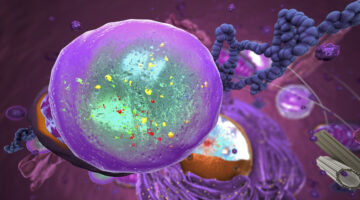In my experience, few topics have provoked as much discussion in healthcare as precision medicine has of late. I believe this is a good thing for two reasons. For some patients, precision therapies hold the key to a functional, comfortable life. For others, precision therapies hold the key to life itself.
Precision medicine has been defined as a new approach; instead of a “one size fits all” approach to clinical medicine, precision medicine drills down and seeks to understand your tiniest genetic, molecular and diagnostic details. As Luke Timmerman over at Xconomy described:
Precision medicine refers to the tailoring of medical treatment to the individual characteristics of each patient. It does not literally mean the creation of drugs or medical devices that are unique to a patient, but rather the ability to classify individuals into subpopulations that differ in their susceptibility to a particular disease, in the biology and/or prognosis of those diseases they may develop, or in their response to a specific treatment.

A Deep-dive Into Specialty Pharma
A specialty drug is a class of prescription medications used to treat complex, chronic or rare medical conditions. Although this classification was originally intended to define the treatment of rare, also termed “orphan” diseases, affecting fewer than 200,000 people in the US, more recently, specialty drugs have emerged as the cornerstone of treatment for chronic and complex diseases such as cancer, autoimmune conditions, diabetes, hepatitis C, and HIV/AIDS.
At the Boston Children’s Hospital Global Pediatric Innovation Summit in November, I once again found myself enthralled by the potential of this approach. One panel session – The Future of Pediatric Precision Medicine – illuminated the factors which contributed to its rise in the medical community. As panelist Dr. Ken Mandl of Boston Children’s Hospital (and my company co-founder) explained, the aim of precision medicine is:
“To stop the current practice of imprecision medicine, where all patients are treated similarly, where data does not reach the point of care, and where the insights we have into the taxonomies of diagnoses and treatments are 150 years old.”
Looking to the future, the panelists in Boston explored how and when we might see the promises of precision medicine come to fruition. Precision medicine depends on advances in population science, whereby we translate longitudinal patient data en masse to “identify markers of progression risk, targets for prevention, and markers of prevention response.”
Precision medicine and population science both depend on a learning health system which seamlessly connects health data across care delivery systems and communities in order to act on these insights for personalized care across populations. With precision medicine enabled in this manner, we can finally see a truly modern healthcare system – driven by big data – taking shape.

With the Rise of AI, What IP Disputes in Healthcare Are Likely to Emerge?
Munck Wilson Mandala Partner Greg Howison shared his perspective on some of the legal ramifications around AI, IP, connected devices and the data they generate, in response to emailed questions.
While precision medicine holds transformative potential, its success at scale depends on precision delivery to match.
In commentary for the New England Journal of Medicine, Dr. Ronald Bayer at Columbia noted that precision medicine research “may well open new vistas of science.” However, he also reminded us that we already know how to improve population health: it requires “an unstinting focus on the factors that matter most to the production of population health.” The Association for Community Affiliated Plans, a group of safety-net health plans, identified these factors as family support systems, housing, nutrition, income, education, and other dynamics that impact a patient’s health.
This new healthcare system we’re building – the truly modern one I’ve described above – needs to advance therapies and cures for uncommon conditions, while also working to better address common risk factors. Ideally, the system needs to do both in tandem: for example, while precision medicine aims for more effective and better tolerated therapies for rare pediatric cancers, precision delivery as promoted by many efforts to transform clinical practice will coordinate and integrate child-centered and family-centered supports for social determinants of health with medical and behavioral health care.
As the system transforms in the years ahead toward a combination of precision medicine and precision delivery, three important elements in our strategy will be:
- Individualized, longitudinal care plans: described in a recent Chilmark Research report as “patient-centric, holistic, interdisciplinary, and dynamic”; “digital and likely to reside in the cloud”; and which “all members of a care team can view, contribute to, update, and distribute.”
- Personalized care coordination workflows: designed to bridge the gap between in-person care and everything else that happens on behalf of a patient, in between visits and across the care continuum.
- Precision delivery by interprofessional teams: led by physicians but inclusive of behavioral health professionals, care coordinators, pharmacists, community and social supports, and engaged patients and caregivers.
This past year, political leaders in Washington, DC, and leaders in the trenches of healthcare began combining their investments and co-creating research agendas to pursue new approaches to Precision Medicine. We’re coming upon the one year anniversary of President Obama’s State of the Union Address in which he pushed to expand the collective knowledge of precision medicine to target specific diseases such as cancer and diabetes.
Over this time, what we have learned at ACT.md is that it is helpful to expand the definition of precision medicine (tailoring medical treatment to the individual) to include an understanding of the precise individual ecosystem of providers, community resources, and caregivers that surround each of us as individual patients. The promise of precision medicine will be unlocked when we recognize the unique impact of precision delivery – based on precise care plans, enabled through precise workflows, and delivered by precise care teams.
Image Source: National Eye Institute on Flickr. Creative commons commercial use.












